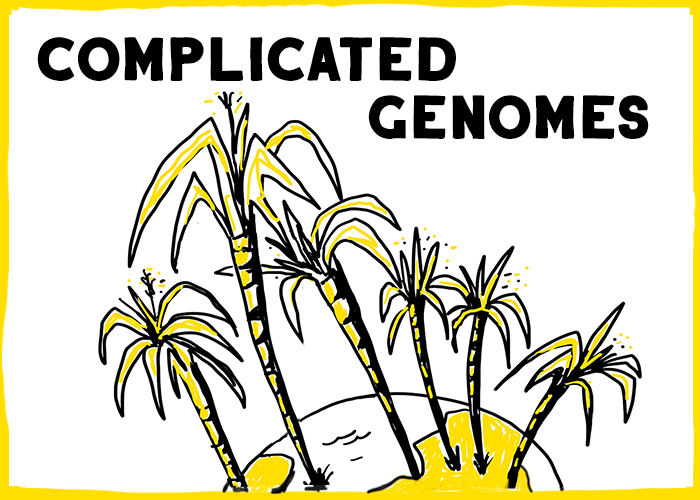One of the most interesting things about people is how different we are from each other. Work published recently by a large international consortium, including Lindsay Waite at the HudsonAlpha Institute for Biotechnology, reports that sequence variants in one specific gene influence the amount of variation in a group of people’s body mass index, or BMI.
The science of genetics has long focused on measuring the components of our genome versus our environment in determining how we look, how big or tall we are, and many other medical and physical traits. In order to find genomic contributors to BMI, scientists in 14 countries pooled together their previous studies on nearly 170,000 individuals. They reexamined data looking at many genetic variants across the entire genome, and statistically determined which variants were truly associated with variation in the BMI value between people.
One gene, called FTO and located on chromosome 16, stood out as the single genomic location where this massive study could show significant association with variation in BMI. Other variants in FTO have previously been reported to be associated with obesity levels within an individual. The new study shows that FTO is also the single detectable gene associated with between-individual variation, or how humans vary as a population in their BMI. In other words, the group of people with one variant at FTO will have a larger range of BMI than the group of people with the other observed variant in the gene.
A popular analogy about this type of study is that we are looking for the keys to certain human traits, and genome-wide association studies like this one shine streetlights on the parts of the genome where we will probably find the keys. We don’t yet know how the function of the FTO gene controls BMI, but now we have an industrial-strength spotlight shining on FTO for further mechanistic studies.
The paper, “FTO genotype is associated with phenotypic variability of body mass index,” was published online by Nature on 16 September and can be seen at http://www.nature.com/nature/journal/vaop/ncurrent/abs/nature11401.html.
Holly Ralston
hralston@hudsonalpha.org
256.508.8954
The HudsonAlpha Institute for Biotechnology in Huntsville, Ala, is the cornerstone of the Cummings Research Park Biotechnology Campus. The campus hosts a synergistic cluster of life sciences talent ‐ science, education and business professionals ‐ that promises collaborative innovation to turn knowledge and ideas into commercial products and services for improving human health and strengthening Alabama’s progressively diverse economy. The non‐profit institute is housed in a state‐of‐the‐art, 270,000-square‐ft. facility strategically located in the nation’s second largest research park. HudsonAlpha has a three‐fold mission of genomic research, economic development and educational outreach.

